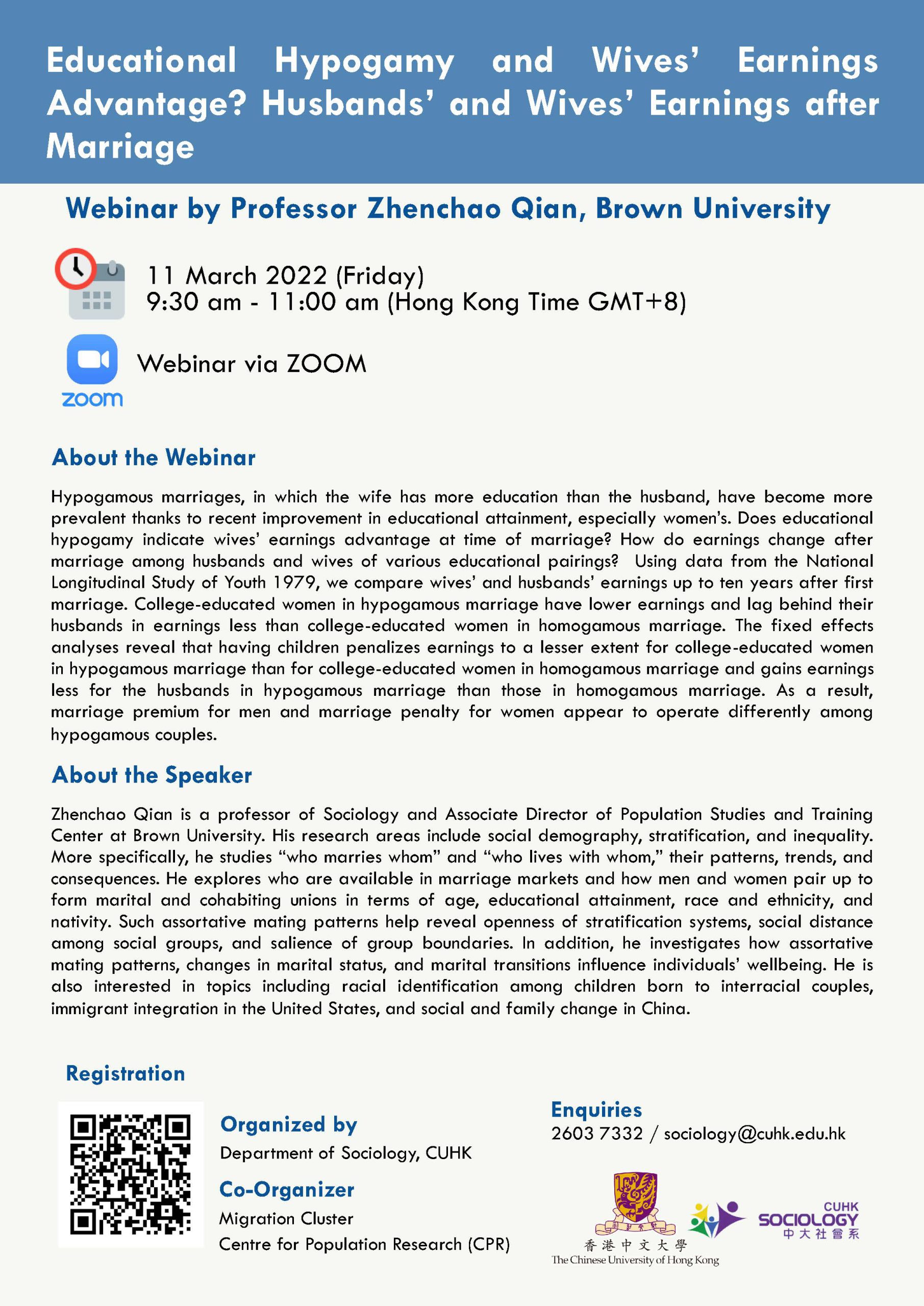
sociology@cuhk.edu.hk
About the Webinar
Hypogamous marriages, in which the wife has more education than the husband, have become more prevalent thanks to recent improvement in educational attainment, especially women’s. Does educational hypogamy indicate wives’ earnings advantage at time of marriage? How do earnings change after marriage among husbands and wives of various educational pairings? Using data from the National Longitudinal Study of Youth 1979, we compare wives’ and husbands’ earnings up to ten years after first marriage. College-educated women in hypogamous marriage have lower earnings and lag behind their husbands in earnings less than college-educated women in homogamous marriage. The fixed effects analyses reveal that having children penalizes earnings to a lesser extent for college-educated women in hypogamous marriage than for college-educated women in homogamous marriage and gains earnings less for the husbands in hypogamous marriage than those in homogamous marriage. As a result, marriage premium for men and marriage penalty for women appear to operate differently among hypogamous couples.
About the Speaker
Zhenchao Qian is a professor of Sociology and Associate Director of Population Studies and Training Center at Brown University. His research areas include social demography, stratification, and inequality. More specifically, he studies “who marries whom” and “who lives with whom,” their patterns, trends, and consequences. He explores who are available in marriage markets and how men and women pair up to form marital and cohabiting unions in terms of age, educational attainment, race and ethnicity, and nativity. Such assortative mating patterns help reveal openness of stratification systems, social distance among social groups, and salience of group boundaries. In addition, he investigates how assortative mating patterns, changes in marital status, and marital transitions influence individuals’ wellbeing. He is also interested in topics including racial identification among children born to interracial couples, immigrant integration in the United States, and social and family change in China.

